
Sensitive Content Classification
Apply AI to detect and categorize sensitive data within files stores across your environment.
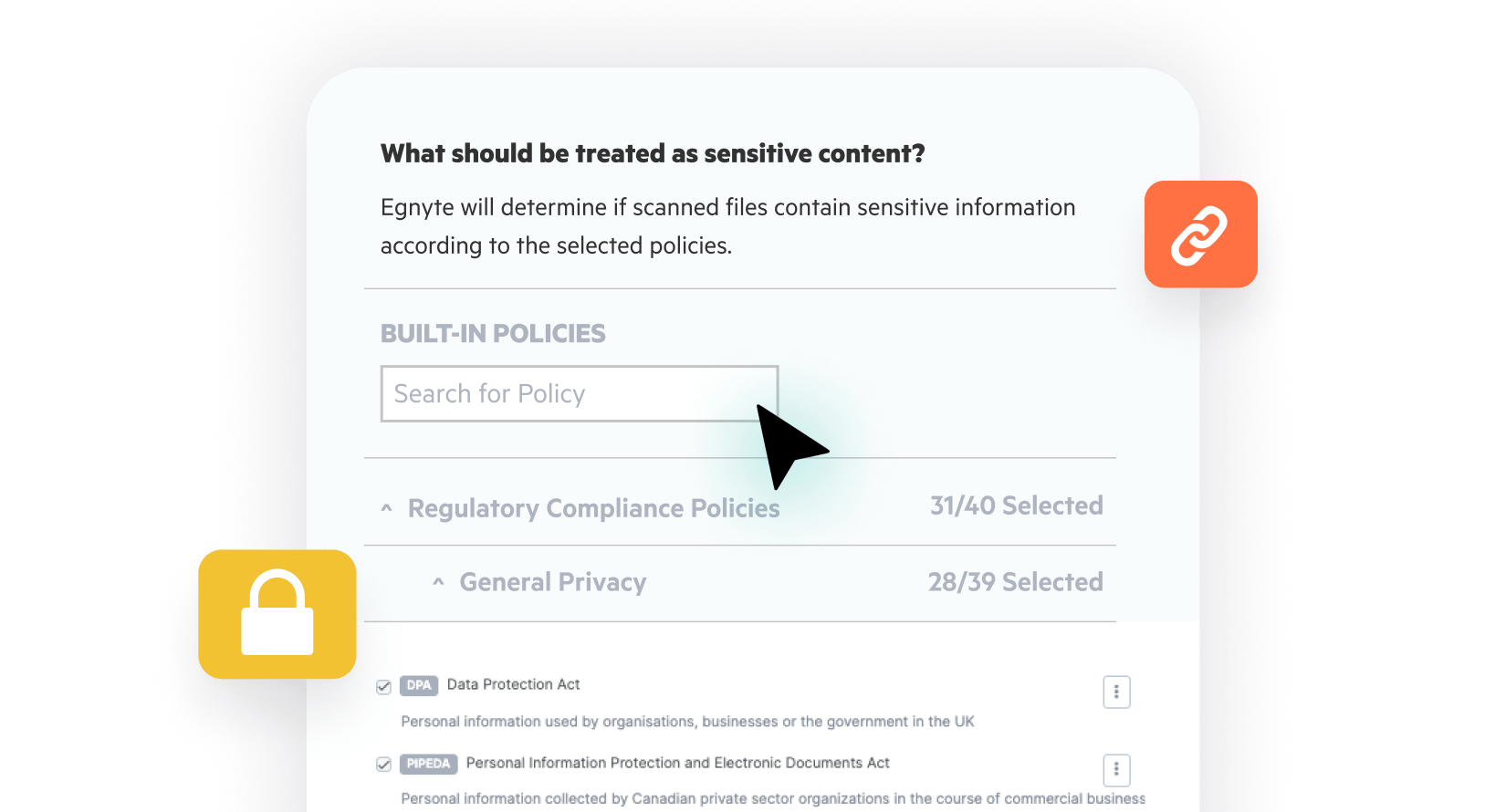
Common Challenges with Sensitive Content Classification
Labor Intensive
Manual data classification is tedious and doesn’t easily scale.
Error Prone
User-driven classification is error prone and partial, lacking context needed for certain controls.
Lack of Consistency
Document protection policies and views vary across repositories and teams.
The Egnyte Solution
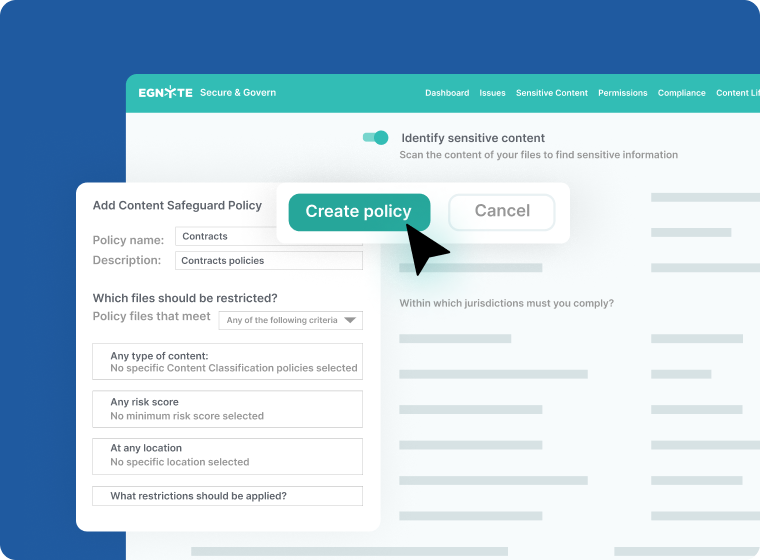
AI-Powered Classification
Use AI to classify content based on 100s of patterns (e.g., bank account number, social security number, CPT code for medical procedures, health insurance claim number) and document type (e.g., NDA, RFI, resume). Or define your own detection criteria.
Sensitive Content Dashboard
Get a consolidated view of where high-value and sensitive information resides across your users and repositories. Egnyte’s platform identifies sensitive information across storage locations – including Microsoft 365, Google Workspaces, and on-prem file servers, as well as Egnyte’s own cloud.
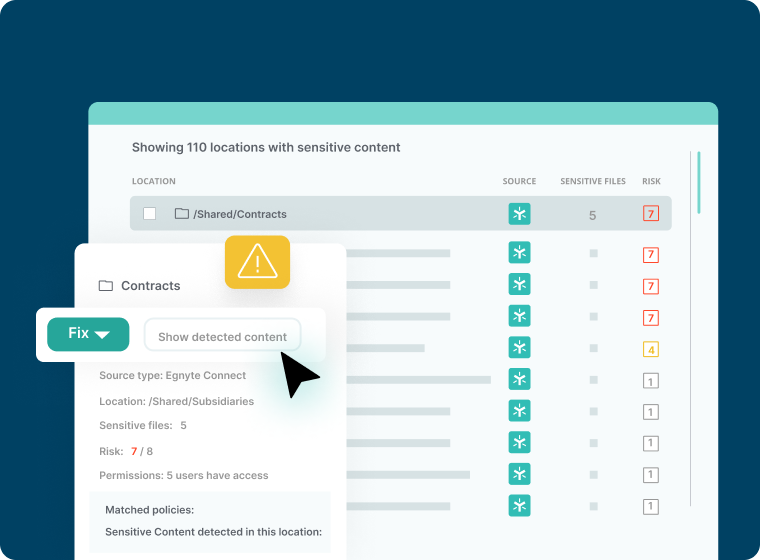
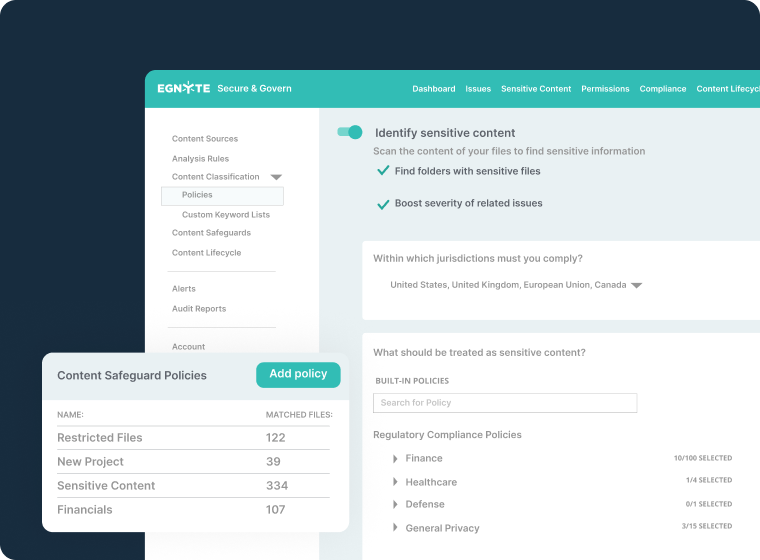
Privacy and Compliance Monitoring
Select from a prebuilt menu of regulations and laws around the world, and Egnyte will automatically label relevant data. Labels can be used to facilitate privacy and cybersecurity practices, including compliance documentation and reporting.
Integrated Security
Once sensitive data is located, Egnyte will automatically apply controls around it. Build document safeguard policies to restrict access and prevent misuse of sensitive information. Or, share sensitive data labels detection by external DLP systems.
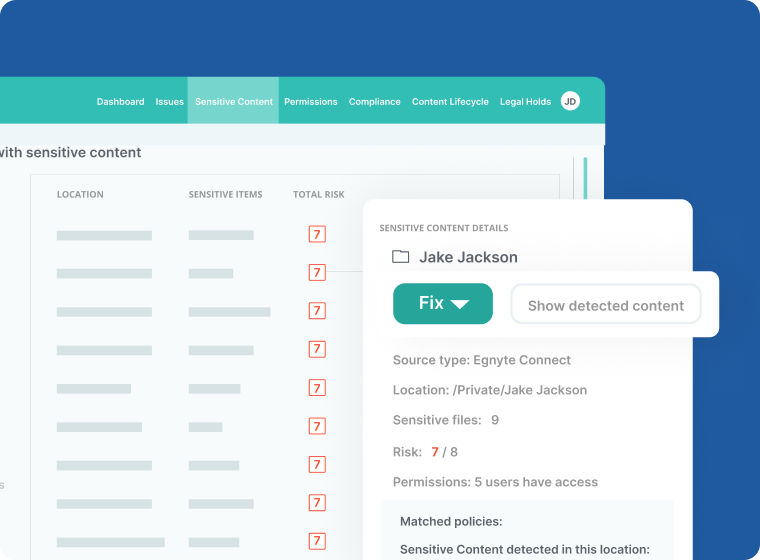
Powered by Egnyte AI
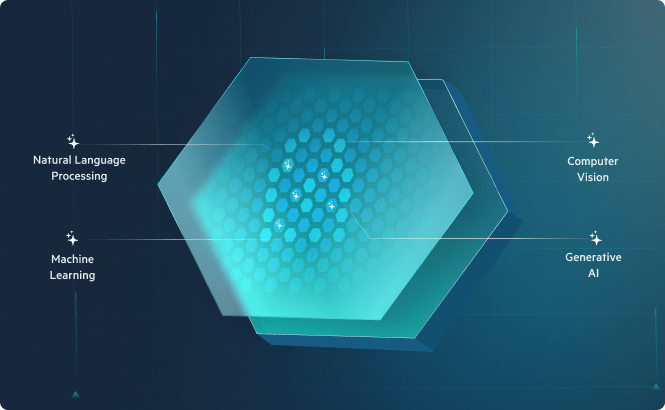
Learn more about Egnyte’s content intelligence engine, which includes:
- GPT-powered models allowing users to "converse" with private data sets in natural language
- Predictive models for content classification, entity extraction and unusual behavior detection
- Connected workflows such as automated labeling, security issue remediation, and human-driven review/approval tasks
